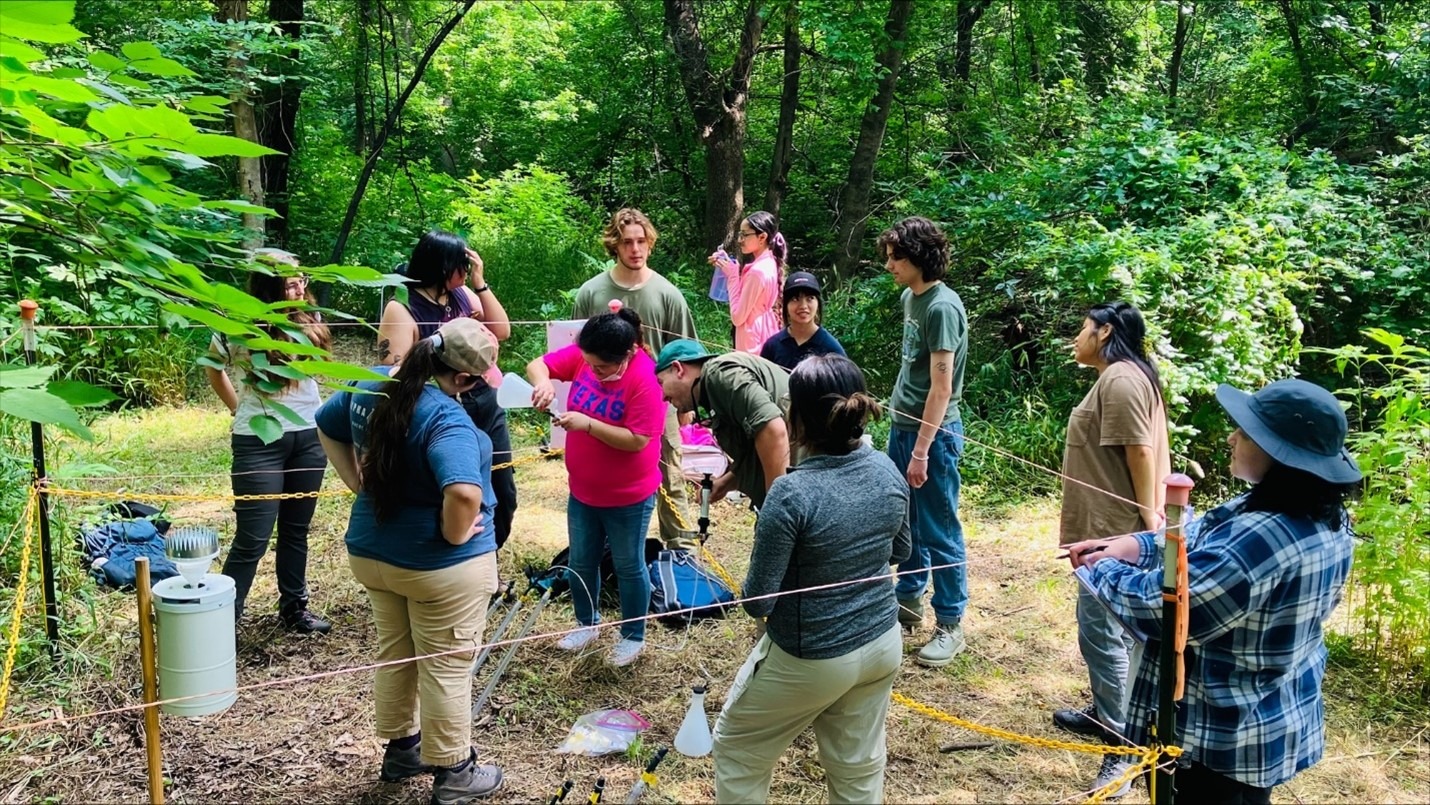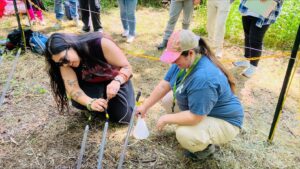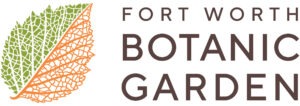
- News & Publications
- News
- Support
- About Us
- Education
- Research
- Research Programs
- Herbarium
- Library & Special Collections
- About the Library
- Library Exhibitions
- The Arader Natural History Collection of Art
- The Stansbery Collection for Botanical Art
- Rare Book Room Collection
- The Oliver G. Burk Children’s Collection
- History of the Library
- Library Inventory
- Library Archives Collection
- Archive Lens
- Collections Lens
- Botany Stories
- Discovery Resources
- Participate
- BRIT Press
- Research Resources
- Collections
November Lunchtime Lecture: South Woods- Hydrology in the Garden
“Plant water uptake strategies in an urban green landscape “
A Hybrid Lunchtime Lecture by Dr. Ricardo Sanchez-Murillo

Join us as Dr. Ricardo Sanchez-Murillo, a professor of Earth and Environmental Science at the University of Texas at Arlington, tells us about his work on water uptake in various tree species here in the garden.
From the presenter:
Urban green landscapes serve to mitigate water pollution and peak flows during storm events in urban landscapes. However, the understanding of the role that plants play in partitioning the urban water cycle is still limited. Here, we present a study in the Fort Worth Botanic Garden to understand water uptake strategies from three common urban species (Elderberry, Sambucus canadensis; Cherry laurel, Prunus caroliniana; and Boxelder maple, Acer negundo) during an unprecedented warm year (2023) in the sub-tropical humid landscape of north-central Texas. Isotope compositions in stems are compared to multiple endmembers, including rainfall, throughfall, surface water, and soil water at different depths. Water from discrete stems and soil samples was extracted by applying high-speed centrifugation. In addition, soil water samples were obtained from suction lysimeters. All isotope ratios were obtained using laser spectroscopy. Mean soil d18O compositions from centrifugation (-3.65‰) and suction lysimeters (-3.48‰) agree with recent (2023) precipitation input in the Dallas-Fort Worth metroplex area (-3.34‰). Stem d18O compositions exhibited a strong temporal trend from high isotope variability at the end of the winter and summer, with more uniform isotope ratios during the spring season. Stem d18O mean composition (-3.11‰) in Cherry laurel agrees with the seasonal soil water isotope ratios. Elderberry d18O ratios evolved from ~ -1.0‰ (winter) to -3.37‰ (spring), indicating a slower uptake and mixing of new water within the existing sap flow. Boxelder maple (-0.17‰ in d18O) exhibited enriched values, suggesting a greater water residence time as well as a preference for distant water sources (+0.08‰ in d18O; nearby swamp or surface depression storage). Our results contribute to the understanding of water extraction analytical procedures for stable isotope analysis (laser spectroscopy) and plant water uptake strategies across three representative plant species in a highly altered urban landscape.
This 1-hr seminar will include a short Q&A session after the lecture. This will be a hybrid style lecture presented at BRIT in the Commons as well as streamed through zoom. To join us virtually, please use the following link: https://us06web.zoom.us/j/86370296022
About the Research Lecture Series
The BRIT Research Lecture Series is designed to create community wide conversation about a diverse range of important and rapidly developing topics. This series gives scientists and speakers a forum for sharing the most current information about their areas of expertise and allows the public to interact with leading members of the local, national, and international scientific community. Read more at fwbg.org/events/lecture-series.
Date
- Nov 07 2023
- Expired!
Time
(online)- 12:00 pm - 1:00 pm

November Lunchtime Lecture: South Woods- Hydrology in the Garden
Date
- Nov 07 2023
- Expired!
Time
(online)- 12:00 pm - 1:00 pm
“Plant water uptake strategies in an urban green landscape “
A Hybrid Lunchtime Lecture by Dr. Ricardo Sanchez-Murillo

Join us as Dr. Ricardo Sanchez-Murillo, a professor of Earth and Environmental Science at the University of Texas at Arlington, tells us about his work on water uptake in various tree species here in the garden.
From the presenter:
Urban green landscapes serve to mitigate water pollution and peak flows during storm events in urban landscapes. However, the understanding of the role that plants play in partitioning the urban water cycle is still limited. Here, we present a study in the Fort Worth Botanic Garden to understand water uptake strategies from three common urban species (Elderberry, Sambucus canadensis; Cherry laurel, Prunus caroliniana; and Boxelder maple, Acer negundo) during an unprecedented warm year (2023) in the sub-tropical humid landscape of north-central Texas. Isotope compositions in stems are compared to multiple endmembers, including rainfall, throughfall, surface water, and soil water at different depths. Water from discrete stems and soil samples was extracted by applying high-speed centrifugation. In addition, soil water samples were obtained from suction lysimeters. All isotope ratios were obtained using laser spectroscopy. Mean soil d18O compositions from centrifugation (-3.65‰) and suction lysimeters (-3.48‰) agree with recent (2023) precipitation input in the Dallas-Fort Worth metroplex area (-3.34‰). Stem d18O compositions exhibited a strong temporal trend from high isotope variability at the end of the winter and summer, with more uniform isotope ratios during the spring season. Stem d18O mean composition (-3.11‰) in Cherry laurel agrees with the seasonal soil water isotope ratios. Elderberry d18O ratios evolved from ~ -1.0‰ (winter) to -3.37‰ (spring), indicating a slower uptake and mixing of new water within the existing sap flow. Boxelder maple (-0.17‰ in d18O) exhibited enriched values, suggesting a greater water residence time as well as a preference for distant water sources (+0.08‰ in d18O; nearby swamp or surface depression storage). Our results contribute to the understanding of water extraction analytical procedures for stable isotope analysis (laser spectroscopy) and plant water uptake strategies across three representative plant species in a highly altered urban landscape.
This 1-hr seminar will include a short Q&A session after the lecture. This will be a hybrid style lecture presented at BRIT in the Commons as well as streamed through zoom. To join us virtually, please use the following link: https://us06web.zoom.us/j/86370296022
About the Research Lecture Series
The BRIT Research Lecture Series is designed to create community wide conversation about a diverse range of important and rapidly developing topics. This series gives scientists and speakers a forum for sharing the most current information about their areas of expertise and allows the public to interact with leading members of the local, national, and international scientific community. Read more at fwbg.org/events/lecture-series.
